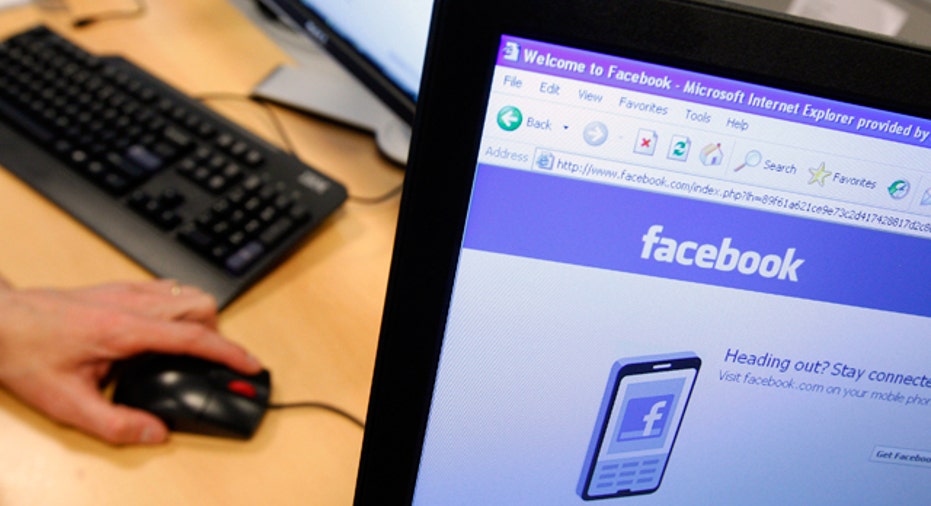Attention College Applicants: Admissions Can See Your Facebook Page

Growing up is tough enough without the worries of your financial future, so Money101 is here for you. E-mail us your questions and let us take off some of the pressure.
Aside from taking standardized test, filing applications and writing essays, high school students applying to college have another assignment: clean up their online lives.
According to a Kaplan survey of college admissions officers, more than 80% of colleges use Facebook to connect with and recruit potential students. The same study shows an increase of friend requests from applicants and that students are open to the idea of communicating through social media. While schools may not base a decision on social media content, students should maintain profiles that shed a positive light on them.
“A first impression is no longer a handshake; it’s a Google search, it’s a search on Facebook,” says Dan Schawbel, author of Me 2.0: Build a Powerful Brand to Achieve Career Success and founder of Millenial Branding. “Because all of this information is online, it makes it easier for employers and admissions officers to find out information on candidates.”
Your Facebook profile should always be a positive representation of yourself, even if you aren’t actively applying to college or a job.
Red Flags to Avoid
Your profile picture is easily accessible and should never depict something inappropriate or illegal, says Schawbel.
“No matter what Facebook does to the profile, because they keep changing and customizing it, that picture is always the most prominent thing on the page by far,” he says.
While a picture is worth a thousand words, what you say on your profile can also be very damaging.
Miriam Salpeter, owner of the job search and social-media coaching firm Keppie Careers and author of Social Networking for Career Success says to avoid making “comments that are extremely negative about anything or anyone, anything derogatory, anything offensive, racist, sexist, homophobic--anything that would indicate that you don’t have good judgment.”
Admissions officers are looking to form a strong, productive student body, and negativity, whether it’s in your status or wall postings, can be a huge turn off.
“Most people don’t want to be around someone who is constantly complaining,” Salpeter says. “Do a self audit; read through what you’re saying in your status. If you wouldn’t get a good impression, make a point to change how you’re illustrating what you’re doing in terms of your persona.”
Be Tight About Privacy Settings
Be proactive in maintaining your online credibility by enacting tight privacy settings on personal information and photos. Michael Fertik, CEO of Reputation.com, explains that the notion that kids don’t care about privacy or their reputations is false.
“Studies show that they actually try to take control of certain parts of their digital lives,” he says. “What they don't fully appreciate yet is the fact that even if you have privacy settings, it’s still public. The data keeps getting edited in ways you never expected because the social networks change their rules.”
Facebook’s ever-changing privacy settings are more in depth and complicated than ever before, claims Schawbel, which can result in content you intended to stay private to be available for those outside of your network.
Schawbel points out that the new Facebook layout posts the last five pictures you were“tagged in” on the front of your profile, giving you more visibility.
“If you don't set your preferences so that people can't tag pictures of you then you lose control of your brand and how you're perceived online,” he says. “Those pictures will represent you at the forefront when someone searches for your name.”
Careful Who You ‘Friend’
Friends can be a great support system to have in your daily life, but they can wreak havoc on your online reputation. The comments and pictures they post can make admission officers think twice about admitting you.
“You never know when someone who you thought was your friend may share something that you wouldn’t want shared,” says Salpeter. “People share things in a private forum and then it winds up that somebody tells or shows somebody else and the person ends up losing an opportunity as a result.”
Make sure the company you keep online makes you look good.
“Even if you're pretty pristine in your own behavior, that does not mean that your friends’ behavior is pristine or that you will come across as pristine,” Fertik says.
Use Social Networks to Your Advantage
There are ways you can use Facebook and other social media sites to help your college admission process. Connect with the universities and programs that you’re interested in by “liking” them or joining certain groups.
“If your profile is clean and you're using it professionally, then it can help you,” says Schawbel. “When everyone has the same skills, that passion, that enthusiasm, that willingness to do whatever it takes to get into that school or get into that company, [it] counts big time.”
Salpeter says that you can demonstrate your leadership and communication abilities to recruiters through Facebook interaction.
“Students can absolutely use Facebook to their advantage by following a school's page, making intelligent, insightful comments, and generally indicating an ability to function well in an online community,” she says. “This helps show an admissions officer how the candidate may behave on campus or as a representative of the school if admitted.”
Fertik says to keep in mind that social networks are just the tip of the iceberg on how admissions officers gauge your online presence. You may want to do some self-investigating to ensure that you’re putting forth your best impression in the digital world.
“We’re also seeing that decision-makers are looking at search results, they're looking online data bases, they're looking everywhere they can, not just the social networking page,” he says. “I think they'd like to see that who you say you are matches with who you appear to be.”



















